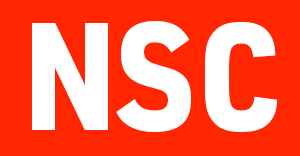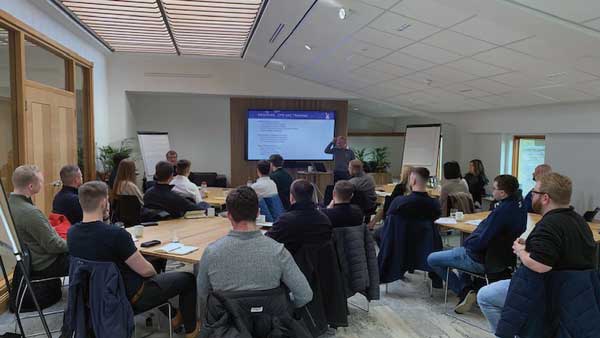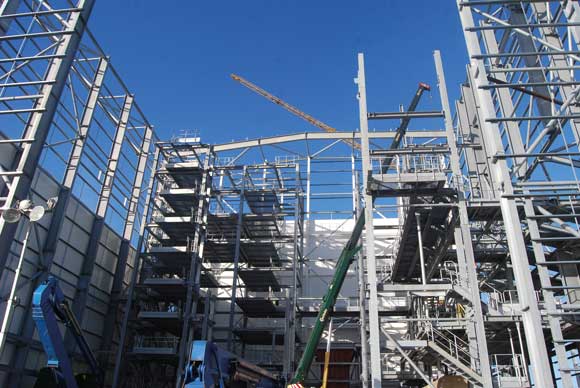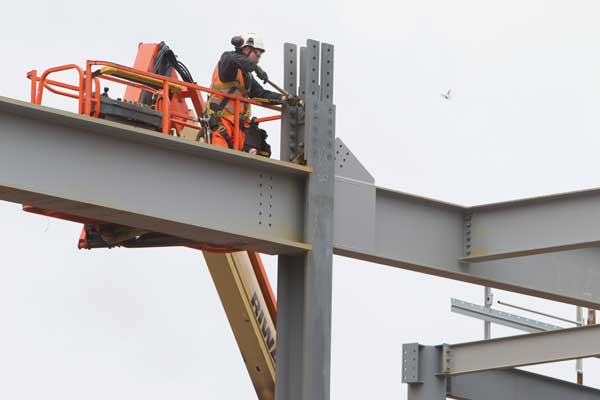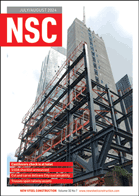Technical
AD 332: Toughness of Bolts
To avoid brittle fracture, both BS 5950-1[1] and BS EN 1993-1-10[2] provide rules for verifying the adequacy of steel elements at low temperatures. However, those rules relate only to structural steel components: they do not apply to bolts. The Advisory Desk has received questions about the use of bolts at low temperatures – how can the designer be assured that the bolts are sufficiently tough? This AD Note offers some general guidance, based on advice from the BCSA Fastener Working Group.
The introduction of the European structural bolting standards has resulted in the basic requirement that all structural bolts must have a charpy V-notch impact strength of at least 27 Joules at the service temperature.
In the UK, non-preloaded bolts manufactured after October 2009 will be supplied in accordance with BS EN 15048:2007[3]; previously bolts were manufactured and supplied to either BS 4190:2001[4] or DIN 931/933[5]. Preloaded bolts (HSFG bolts) are supplied in accordance with BS EN 14399-3[6].
Both of the European Standards BS EN 14399-3 and BS EN 15048 specify that all bolt property classes shall be tested at -20°C and have charpy V-notch impact strength of at least 27 Joules.
Non-preloaded bolts manufactured to both BS 4190 and DIN 931/933, and preloaded bolts manufactured to BS 4395:1969[7] have no specified low temperature impact properties. Ad-hoc testing of bolts to these standards manufactured in the UK has shown them to have adequate toughness.
Bolts can have wide variations in chemical composition: this affects the temperature at which the mode of fracture changes from ductile to brittle. Hence, the advice from bolt suppliers is that bolts should not be used at a lower temperature than the test temperature of -20°C, at which they would have impact strength of at least 27J. Bolts that are required for use at temperatures lower than -20°C will have to be specially manufactured and/or tested.
Designers may therefore assume that:
- All Non-preloaded bolts to BS EN 15048 have sufficient toughness down to -20°C.
- All preloaded bolts to BS EN 14399-3 have sufficient toughness down to -20°C.
- All bolts to BS 4395, BS 4190 and DIN 931/933 can only be presumed to have sufficient toughness if tested at the service temperature and found to have the minimum impact strength of 27 Joules. Historically, bolts to these standards have been used in the UK for more than 40 years without any report of failures due to brittle fracture.
If the minimum steelwork temperature is lower than -20°C (which is not the case for ordinary building steelwork in the UK), then it is advised that both non-preloaded and preloaded bolts are specially manufactured and/or tested.
It is important for the specifiers to ensure that all bolts are specified to the correct standard and for the steelwork contractor to ensure that the correct product is supplied.
References
- BS 5950-1:2000 Structural use of steelwork in building. Code of practice for design. Rolled and welded sections.
- BS EN 1993-1-10:2005 Eurocode 3. Design of steel structures. Material toughness and through-thickness properties.
- BS EN 15048-1:2007 Non-preloaded structural bolting assemblies. General requirements.
BS EN 15048-2:2007 Non-preloaded structural bolting assemblies. Suitability test. - BS 4190:2001 ISO metric black hexagon bolts, screws and nuts. Specification.
- DIN 931: M1.6 to M39 Hexagon head bolts – Product grades A and B.
DIN 933: M1.6 to M52 Hexagon head screws – Product grades A and B. - BS EN 14399-3:2005 High-strength structural bolting for preloading. System HR. Hexagon bolt and nut assemblies.
- BS 4395-1:1969 Specification for high strength friction grip bolts and associated nuts and washers for structural engineering. General grade.
BS 4395-2:1969 Specification for high strength friction grip bolts and associated nuts and washers for structural engineering. Higher grade bolts and nuts and general grade washers.
Note: Both BS 4395-1:1969 and BS 4395-2:1969 are replaced by BS EN 14399-1:2005, BS EN 14399-2:2005, BS EN 14399-3:2005, BS EN 14399-4:2005, BS EN 14399-5:2005, BS EN 14399-6:2005
Contact: Abdul Malik
Tel: 01344 636525
Email: advisory@steel-sci.com
